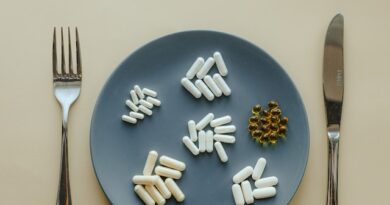
The Key is Bioavailability – Minerals
Minerals are vital components of our food. They act as building materials for our bones, influencing muscle and nerve function, and regulating water balance in your body. Minerals are components of hormones, enzymes, and other biologically active compounds.
Minerals are naturally occurring inorganic solids with specific chemical compositions and crystalline structures. A mineral is composed of a single piece or compound.
Minerals are crucial for your body to stay healthy. Your body uses minerals for many functions including keeping your bones, muscles, heart, and brain working properly. They are important for making enzymes and hormones.
There are two kinds of minerals: macrominerals and trace minerals. Macrominerals include calcium, phosphorus, magnesium, sodium, potassium, chloride, and sulfur. Trace minerals include iron, manganese, copper, iodine, zinc, cobalt, fluoride and selenium.
Mineral supplements should only be ingested when a deficiency has been diagnosed.
Find below a glimpse of a few important minerals.
Boron
Fructoborate [Calcium Fructoborate] is the optimal choice.
This type of boron is absorbed more readily than standard forms and mimics its natural state in fruits and vegetables. Boron aids in elevating DHEA levels to regulate adrenal glands and boost energy levels. Boron assists in absorbing and assimilating Vitamin D to build and fortify bones, mitigating joint pain and swelling.
Boron may impact how the body handles other minerals such as calcium, magnesium, and phosphorus. It has been used to fight vaginal infections and enhance estrogen levels. It may have antioxidant effects. The science respective to its use in these instances is limited.
Dosage –> 750 to 1,500 mcg/day.
Calcium
Calcium Glycinate Chelate is the best form where calcium is chelated to the amino acid glycine. Other forms available include Calcium Fructoborate, Calcium Ascorbate, and d-calcium Pantothenate.
Calcium is vital for building strong bones and teeth. It is considered the most important mineral relative to bone density but its efficient absorption and assimilation must be collaborated with magnesium, Vitamins D3, and K2.
Calcium is a mineral most often associated with healthy bones and teeth, although it also plays an important role in blood clotting, helping muscles to contract, and regulating normal heart rhythms and nerve functions. Your body needs calcium for muscles to move and for nerves to carry messages between your brain and every part of your body.
Dosage –> 200 to 400 mg/day. Excess amounts may suppress Vitamin D circulation and incite arterial calcification.
Chloride
Himalayan sea salt and Celtic salt represent the best forms.
Chloride is needed to keep the proper balance of body fluids. It is an essential part of digestive [stomach] juices.
Sodium balance is one of the most monitored systems in the body. Because sodium is so important to the maintenance of health, it is finely tuned to a very narrow and precise level. Taking excess sodium for most people will not result in health problems, assuming the body is functioning well.
Genetics can increase the effect the sodium on blood pressure and overall functionality.
Types of sodium include table salt [sodium chloride and iodine], Himalayan salt [slightly lower sodium plus calcium, potassium, iron oxide (pink color)], and Celtic salt [slightly lower sodium and trace minerals].
Too little chloride in the body can occur when your body loses a lot of fluids. This may be due to heavy sweating, vomiting, or diarrhea. Medicines such as diuretics can also cause low chloride levels.
Too much sodium-chloride from salted foods can:
- Increase your blood pressure;
- Cause a buildup of fluid in people with congestive heart failure, cirrhosis, or kidney disease.
Dosage –> Sodium is prevalent in the diet. Find a guide below:
- Males and females, aged 14 to 50 @ 2.3 g/day
- Males and females, aged 51 to 70 @ 2.0 g/day
- Males and females, aged 71 and over @ 1.8 g/day
- Pregnant and lactating females of all ages @ 2.3 g/day
Chromium
Chromium Nicotinate Glycinate [Copper Glycinate Chelate] is the optimal form.
Chromium is an essential element that is not synthesized by the body; therefore, it must be obtained from the diet or an exogenous source.
The majority of multivitamins on the market include chromium in picolinate or chloride forms. The issue with these types is inefficient absorption and swift exit from the bloodstream. Stick to the chromium chelated to niacin and glycine.
Chromium is important in the breakdown of fats and carbohydrates. It stimulates fatty acid and cholesterol synthesis. They are important for brain function and other body processes. Chromium also aids in insulin action and glucose breakdown, metabolism, energy levels, and regulating blood sugar levels.
Dosage –> 125 to 250 mcg/day. Increased dosage may be necessary if an absorption, blood sugar, or metabolic concern is present.
Copper
Copper chelated to amino acid and glycine [Copper Glycinate Chelate] is the best choice.
Copper is a micronutrient that is involved in many processes in the body and can easily become deficient due to the lack of intake (even in a healthy diet).
The body cannot produce copper on its own so it requires dietary intake with food or supplementation. Copper has a narrow range of safety; it is a common deficiency yet can create toxicity if over-supplemented. Most whole food sources are low in copper.
Copper is vital for blood cell formation, transporting iron within red blood cells, enhancing the immune system, and solidifying bone health. Ideal levels promote the development and growth of brain pathways.
Copper sustains optimal thyroid levels, regulates ongoing DNA repair, maintains bone and cartilage repair, and produces melanin which is responsible for skin and hair pigment.
Copper is crucial to the prevention of anemia, heart disease, blood sugar issues, and arthritis.
Dosage –> 0.5 to 1.0 mg/day.
Iodine
Potassium Iodide is the best form.
Iodine is needed for the cells to change food into energy. Humans need iodine for normal thyroid function and for the production of thyroid hormones. Iodine is critical for sustainable energy levels, metabolism, hair and skin, and tumor prevention. Nearly every cell in your body has a receptor for iodine.
Potassium Iodide is the best source for daily usage, however, sodium iodide and molecular iodide from kelp provide additional support – especially breast tissue – if supplementation is recommended.
Dosage –> 75 mcg to 25 mg/day
Iron
Heme iron is the optimal choice.
Our bodies effectively utilize heme iron because absorption is seamless. Iron is an essential mineral and one of the most common nutritional deficiencies on the planet.
Individuals with the highest likelihood of an iron deficiency include menstruating females, pregnant women, children, and those consuming a plant-based diet. Some individuals have a genetic propensity toward increased iron levels.
Almost 10% of women in developed countries are iron deficient. Fatigue, insomnia, hair loss, and ice crunching are common signs of deficiency. Inadequate intake of vitamin C can contribute to iron malabsorption.
Plant-based iron is not incorporated as well as animal-based iron. Excess levels of iron can contribute to fatigue, weakness, loss of libido, and high blood sugar.
Iron is a critical component for producing oxygen transport proteins within red blood cells and the oxygenation of muscles. Iron is vital to the brain and it is important in the production of neurotransmitters. Insufficient iron in the diet is associated with changes in behavior and cognitive functioning.
The body needs iron to make the oxygen-carrying proteins hemoglobin and myoglobin. Hemoglobin is found in red blood cells. Myoglobin is found in muscles. Iron is found in every cell.
Dosage –> Consult your medical practitioner. Typical dosage is 8 to 18 mg/day for adult males and females. This does not consider pregnant or lactating women.
Manganese
Manganese chelated to amino acid glycine [Manganese Glycinate Chelate].
Manganese helps the body form connective tissue, bones, blood clotting factors, and sex hormones. It plays a role in fat and carbohydrate metabolism, calcium absorption, and blood sugar regulation. Manganese is also necessary for normal brain and nerve function.
Manganese activates an enzyme called prolidase which formulates collagen.
Dosage –> 2.5 to 5 mg/day.
Magnesium
Magnesium chelated to amino acid glycine [Magnesium Bisglycinate Chelate Buffered] is the best form.
Magnesium Bisglycinate Chelate Buffered is swiftly absorbed and easy on the digestive tract – especially the stomach – at higher doses.
Magnesium is a mineral found in the earth, sea, plants, animals, and humans. It is an essential nutrient needed in high amounts, however, about 50% of Americans are likely deficient. Magnesium metabolizes B vitamins
Magnesium is vital to over 300 reactions in the body including metabolism, transmission of nerve impulses, and blood pressure regulation. It impacts several systems and can affect mood.
It helps to maintain normal nerve and muscle function, supports a healthy immune system, keeps the heartbeat steady, and helps bones remain strong. It also helps adjust blood glucose levels. It aids in the production of energy and protein.
Magnesium metabolizes the B vitamins, boosts mitochondrial biogenesis, expedites muscle recovery after exertion, regulates thyroid function, promotes mental well-being, and facilitates cellular energy and proliferation.
It is essential in metabolic processes – especially carbohydrate processing. Magnesium is responsible for keeping the heart muscles healthy and strong.
Proper levels of magnesium have been shown to mitigate arterial calcification, hypertension, and atherosclerosis. Low magnesium levels may incite anxiety.
Dosage –> 200 to 400 mg/day.
Molybdenum
Molybdenum chelated to amino acid glycine [Molybdenum Glycinate Chelate] is the optimal choice.
Molybdenum Glycinate Chelate is easily absorbed and assimilated in your body. Its chief function as a cofactor for enzymes is breaking down purines. Purines produce waste products such as uric acid. Excess uric acid can cause health issues such as gout, kidney stones, and certain types of arthritis.
Molybdenum is a necessary mineral to stay healthy. Your body uses molybdenum to process proteins and genetic material like DNA. Molybdenum also helps break down drugs and toxic substances that enter the body.
Molybdenum collaborates with Vanadium to quell the replication of tumor cells. Exercise increases the levels of molybdenum and impacts muscle proficiency.
Dosage –> 6.25 to 125 mcg/day.
Potassium
The best source is Potassium Citrate. Other forms are available for specific purposes.
Potassium is a mineral we need in order for our bodies to function. It is a type of electrolyte. Potassium Citrate is a well-absorbed form of potassium. In addition to its role in heart and skeletal muscle function, it also alkalinizes urine to support kidney and lower urinary tract health.
Potassium is an important mineral for the human body. It ensures proper muscle function, maintains bone health, controls acid-alkaline balance, and metabolizes carbohydrates.
Potassium plays a vital role in the proper functioning of skeletal muscle and the heart muscle. It is essential for nerve impulse transmission, muscle contractility, and maintaining normal blood pressure, energy production, and nucleic acid synthesis.
Epidemiological evidence suggests that diets high in potassium provide numerous benefits to cardiovascular health.
A chronic potassium deficiency can result in various adverse health conditions, including prolonged feelings of weakness and fatigue. Potassium Citrate promotes cardiovascular health and supports kidney and lower urinary tract health by inhibiting precipitates in the urine because of its alkalizing effect.
Potassium Citrate’s benefit of alkalizing the urine also inhibits the growth of undesirable bacteria in the urinary tract.
Excess or insufficient potassium levels in your body can cause serious health problems. A low blood level of potassium is called hypokalemia. It can cause weak muscles, abnormal heart rhythms, and a slight rise in blood pressure.
Dosage –> 2,600 to 3,500 mg/day
Selenium
The optimal choice is Selenium chelated to amino acid glycine [Selenium Glycinate Complex].
Selenium is a mineral found in the soil which plays a key role in metabolism. It is an antioxidant, so it protects the body from free radicals and oxidative stress. Oxidative stress is an imbalance between the production of free radicals and the ability of the body to counteract their effects.
Selenium delays cell damage and protects the body from oxidizing agents caused by many diseases and pollutants. Selenium is essential for everyone as it supports thyroid hormone metabolism and protects against infections.
Thyroid hormone metabolism depends on selenium as the T4 hormone is converted to the active T3 hormone. Selenium prevents and neutralizes free radicals to mitigate DNA damage. It supports the excretion of excess mercury levels, may prevent autoimmune disorders, and provides crucial support to reproductive health.
Dosage –> 50 to 300 mcg/day.
Zinc
Zinc chelated to amino acid glycine [Zinc Bisglycinate Chelate] is the most readily absorbed form of zinc.
Zinc is an essential trace mineral responsible for regulating the nervous system. It assists at least 100 different processes in the human body and is a common micronutrient deficiency. Deficiencies can lead to many health issues and optimal levels are essential to thrive. Plant-based sources of zinc generally provide significantly lower bioavailability than animal-based food sources.
Swift recovery of muscles, tendons, and ligaments is a by-product of zinc absorption. It also mitigates depression and bolsters your immune system. Zinc is necessary for nearly 100 enzymes responsible for vital chemical reactions.
It is a major player in the creation of DNA, the growth of cells, building proteins, healing damaged tissue, and immune system support. Zinc is integral to optimal communication between neurons and the brain and mitigating bacterial growth.
Dosage –> 7.5 to 15 mg/day.


